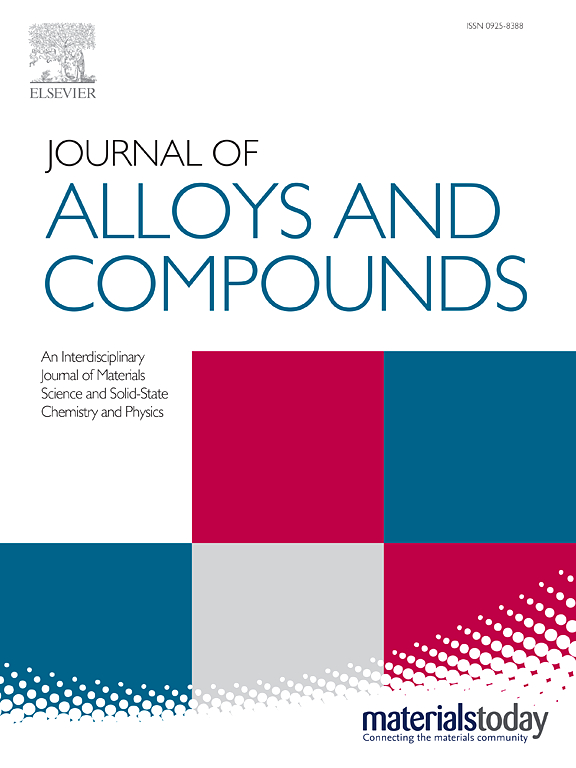在 Ru/Ni-HAP 催化剂上增强复杂挥发性有机化合物的催化燃烧:对 Ru 和 Ni 物种协同效应的见解
IF 5.8
2区 材料科学
Q2 CHEMISTRY, PHYSICAL
引用次数: 0
摘要
本研究将镍作为促进剂,浸渍在羟基磷灰石(HAP)上,制备出掺镍的 HAP 支持物,然后通过尿素沉淀法将 Ru 高度分散到 Ni-HAP 上。Ru和Ni的协同作用使纳米Ru粒子的粒径减小,Ru4+/Ru0比值增大,这主要归因于活性组分与OH-和PO43-官能团之间的强相互作用。同时,Ru/Ni-HAP 具有最多的中等强度酸位点和相对较低的还原温度,这表明酸性和氧化还原能力之间达到了临界平衡。Ru/Ni-HAP 表现出卓越的活性,分别在 280 ℃ 和 400 ℃ 下完全转化甲苯和二氯甲烷,并且在整个稳定性测试过程中都能保持如此高的活性。此外,在 600 ppm 的甲苯和二氯甲烷浓度以及 40,000 mL(g-h)-1 的空间速度条件下,也观察到了最佳催化性能。这些发现为开发具有广阔应用前景的抗氯催化剂提供了宝贵的启示。本文章由计算机程序翻译,如有差异,请以英文原文为准。
Enhanced catalytic combustion of complex VOCs over Ru/Ni-HAP catalyst: Insights into the synergic effects of Ru and Ni species
In this study, Ni was severed as a promoter and impregnated on hydroxyapatite (HAP) to prepare a Ni-doped HAP support, and then Ru was highly dispersed onto the Ni-HAP through urea precipitation method. The synergistic effects between Ru and Ni caused a reduction in the particle size of Ru nanoparticles and an increased Ru4+/Ru0 ratios, which was primarily attributed to the strong interaction between the active components and functional groups of OH- and PO43-. Meanwhile, Ru/Ni-HAP possessed the highest amount of medium-strength acid sites and relatively low reduction temperatures, indicating the critical balance between acidity and redox capability. Ru/Ni-HAP exhibited superior activity with complete conversion of toluene at 280 °C and DCM at 400 °C, respectively, and such high activity can be maintained throughout the stability tests. Besides, optimal catalytic performance was observed under 600 ppm concentrations of toluene and DCM with a space velocity of 40,000 mL(g·h)-1. These findings can provide valuable insights for the development of chlorine-resistant catalysts with promising application prospects.
求助全文
通过发布文献求助,成功后即可免费获取论文全文。
去求助
来源期刊

Journal of Alloys and Compounds
工程技术-材料科学:综合
CiteScore
11.10
自引率
14.50%
发文量
5146
审稿时长
67 days
期刊介绍:
The Journal of Alloys and Compounds is intended to serve as an international medium for the publication of work on solid materials comprising compounds as well as alloys. Its great strength lies in the diversity of discipline which it encompasses, drawing together results from materials science, solid-state chemistry and physics.
 求助内容:
求助内容: 应助结果提醒方式:
应助结果提醒方式:


